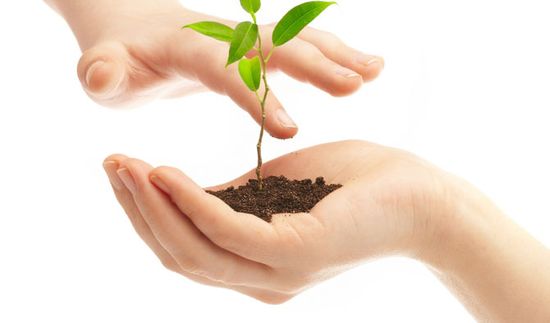Growing Organic: Better for You and Better for the Environment
Organically grown produce has become the latest of many “green” methods to lessen impact on the environment and improve public health. Organic farming and gardening offer many benefits for the consumer. Most importantly, organic gardening ensures that you are consuming the healthiest fruits, vegetables and herbs with the highest amount of nutrients. And the fresher and healthier your produce is, the better it will taste.
The majority of the produce found in today’s grocery store has been grown with the aid of fertilizers to enhance plant growth, herbicides to fend off weeds, pesticides to kill insects that are harmful to the plant, and sometimes even genetic modification to produce a more visually appealing product. Not to mention that some produce is grown indoors rather than out, further diminishing its nutritional value. Combined, all of these practices make eating this food a less nutritious, less tasty and more dangerous proposition.
Not only do organic gardening and farming provide a better option for the consumer, they also offer many environmental benefits. For land to be certified organic, farmers are not allowed to use any chemicals or substances that might pollute the air, water or the food itself. The use of chemicals in gardening and farming has serious long-term effects on the environment because these chemicals never entirely disappear during the course of a growing season. Instead, remnants of the substances will leech into the surrounding soil and gradually make their way into the water system, and later the food chain.
To ensure the ongoing fertility of the soil, organic farmers use methods such as crop rotation and composting. To control pests, they utilize non-toxic, natural materials. No build-up of unhealthy chemicals happens in the soil, the water or the food chain with these methods, preserving the long-term health of the environment.
Organic gardening and farming also eliminate the packaging, transportation and fuel costs associated with the use of pesticides and fertilizers. These costs can be tremendous when you consider how much material must be spread over just one acre of farmland.
Another considerable benefit of organic farming and gardening is the reduction in soil erosion. Organic plots build the amount of organic matter in the soil, making it better able to soak up water. When rainwater does not soak into the soil, it will “run off.” The force of the running water carries the topsoil with it, eroding the land. Over time this process can severely impact the fertility of an area. By using organic growing methods, soil erosion is reduced and the overall richness of the soil increased.
Because of the numerous advantages of organic farming and gardening for the environment, countless numbers of people from around the world are turning to organic growing practices to eat and live better. To enhance your own eco-friendly lifestyle, consider growing a organic garden if you have the space. If not, buy locally-grown organic produce from your neighborhood farmer’s market. No matter how small, every “green” step will improve the health of your family and the health of the environment.

